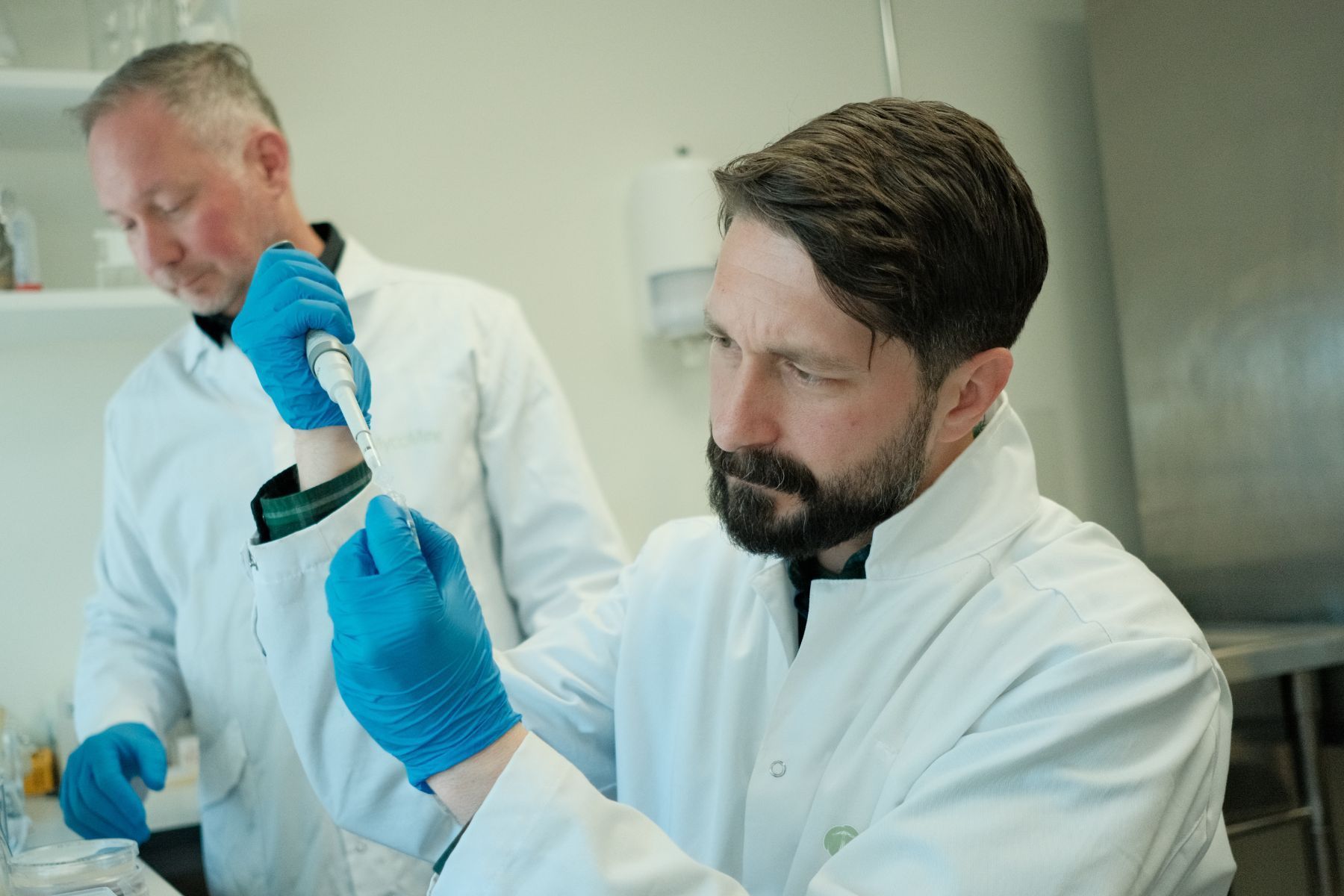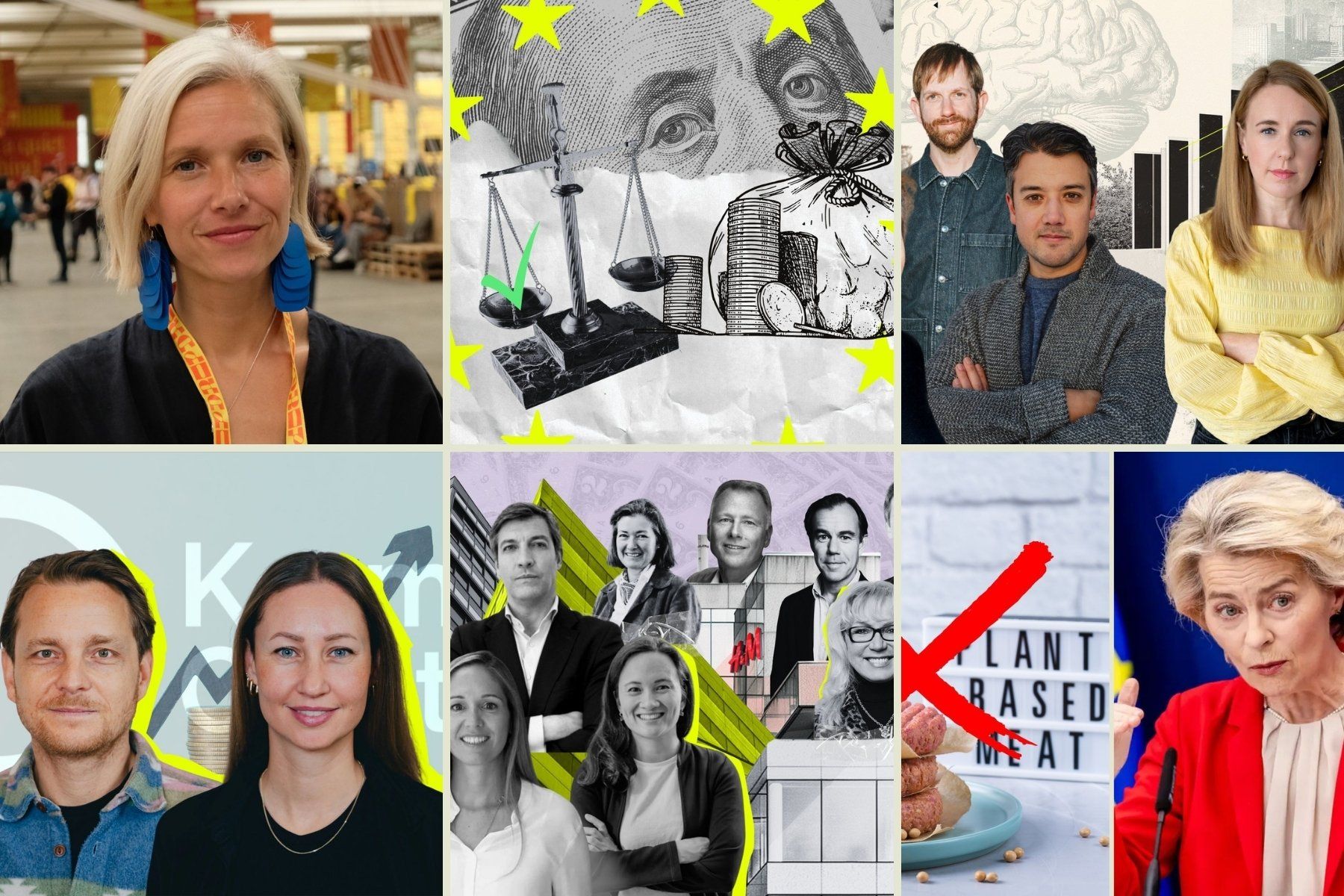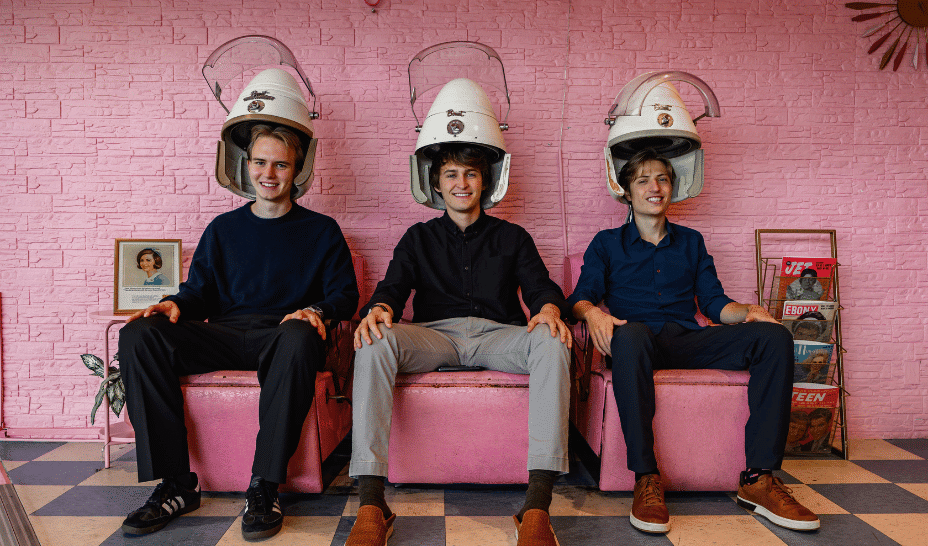Inside Nato's €1b bet on European defence startups
NATO's venture capital arm has got €1 billion to invest in defence and security startups. Now, Patrick Schneider-Sikorsky, partner and deeptech investor, is heading to Gothenburg's GoWest conference in January to scout Swedish startups. <br><br>"We're seeking the most innovative and powerful technologies," Schneider-Sikorsky tells Impact Loop ahead of the major event.

This is a paid partnership with deeptech conference GoWest in Gothenburg, Sweden, 28-30 January. Read more in the box below the article.
Defence tech – that's technology for defence, security and resilience – has been pulling in serious VC money lately. It's even reshaping the impact sector, with some impact startups cottoning on to the benefits of pivoting their products toward "dual use" – applications in both civilian and military contexts.
For Patrick Schneider-Sikorsky, partner at Nato's venture capital outfit and soon-to-be speaker at Gothenburg's deeptech conference GoWest (28-30th January), it's clear that appetite for these innovations is skyrocketing – and the capital is following.
"Three, four years ago, these types of funds were quite unique. But we've seen a massive uptick. I'd like to think that the Nato Innovation Fund’s creation and launch has had some part to play in that but I think more broad geopolitical shifts have driven that as well", he tells Impact Loop ahead of the forum.
The sector itself is going through a transformation. Historically dominated by large corporations, the dual-use space is now seeing an influx of startups with fresh ideas. That's where NATO's innovation fund comes in.
"Part of our mission, beyond investing in these types of companies, is to be a bridge between startups, innovators, defence, and end users," says Schneider-Sikorsky.
Investment horizons up to 15 years
With a background in deeptech investing, Schneider-Sikorsky's trip to GoWest in January is all about meeting potential investment targets. The fund's €1 billion is earmarked for deeptech companies aligned with Nato’s core interests – think defence innovation and cybersecurity. Notable investments include Aquark Technologies for quantum sensors in extreme environments and Tekever to scale AI-driven unmanned aerial systems.
"On the one hand, we're seeking the most innovative and powerful technologies and trying to get them all the way to the end users. But we also have a more demand-driven approach, where we see needs for different technologies," says Schneider-Sikorsky.
He points to examples like GPS free drones, ground and space reconnaissance tech, and various command and control software solutions.
"Obviously a lot of innovation has come about as a result of the conflict in Ukraine. But at the same time, defence departments today are also more interested in tech-driven solutions compared to a few years ago," says Schneider-Sikorsky.
Is it really a good thing that these innovations come from private companies rather than the state?
"Yes, I think we should focus on getting the best technology into the hands of the defence department, rather than just looking at innovation from governments. There have always been collaborations between the public and private sectors, and today much innovation comes from the private sector."
The impact sector has recently been buzzing with debate about whether defencetech counts as impact. At venture capital firm Norrsken's impact event in Barcelona in November – which happened to coincide with Donald Trump's election victory – there was discussion about whether capital might shift from pure climate investments to European security.
For Schneider-Sikorsky, the answer is clear:
"If citizens in a country are threatened, that has a negative impact. Then there are issues like climate change that also affect defence and security. The worse conditions are for people in different parts of the world, especially in warmer regions, the higher the likelihood of conflict."
Now Schneider-Sikorsky is travelling to GoWest in Sweden, seeking investments under Nato’s innovation fund's usual criterias: Deeptech companies with dual-use applications that can be deployed for defence, security and resilience.
This could mean artificial intelligence, autonomous systems, quantum tech, biotech, space tech, hypersonics (very high-speed flight), novel materials and manufacturing, energy and next-gen communication systems.
Investments typically range from €1.5 to €15 million.
"We're looking for commercially very successful companies that will drive returns, but also companies that can work with authorities and have a long-term strategic impact on Nato’s defence, security and resilience," says Schneider-Sikorsky.
What does the ecosystem need to produce more deeptech companies?
"I think it's a combination of good R&D, programmes to spin off and commercialise IP, and available venture capital. Then you also need success stories. In Sweden there are people like Daniel Ek from Spotify who has invested in several deeptech and defencetech companies. I think that will inspire more entrepreneurs in this space."
Get full access to Europe's new platform for impact news
- Quality journalism, interviews, investor profiles and deep-dives
- Daily newsletter with top stories, latest funding rounds and roundup to keep you in the loop
Keep reading – get in the loop!
- Håll dig i loopen med vårt dagliga nyhetsbrev (gratis!)
- Full tillgång till daglig kvalitetsjournalistik med allt du behöver veta inom impact
- Affärsnätverk för entreprenörer och investerare med månatliga meetups
Fortsätt läsa – kom in i loopen!
- Håll dig i loopen med vårt dagliga nyhetsbrev (gratis)!
- Full tillgång till daglig kvalitetsjournalistik med allt du behöver veta inom impact
- Affärsnätverk för entreprenörer och investerare med månatliga meetups







